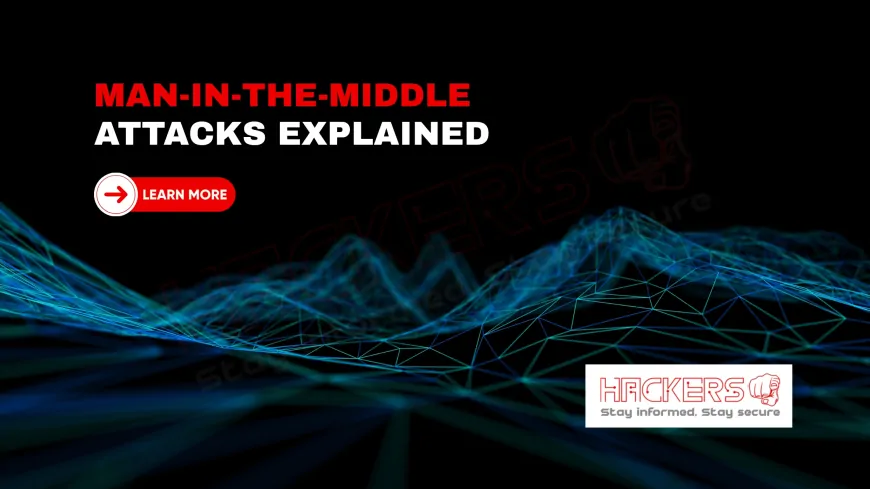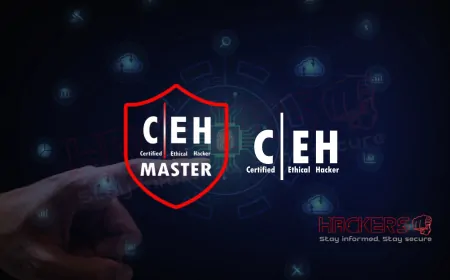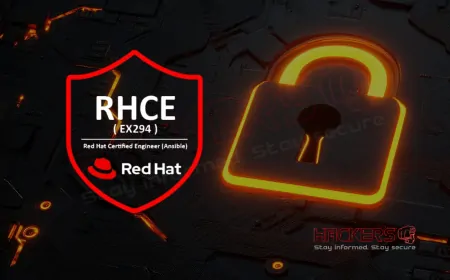How Do Man-in-the-Middle (MITM) Attacks Work and How to Prevent Them?
Imagine you’re sending a private letter, but someone secretly intercepts it, reads it, and even alters it before it reaches the recipient. In the digital world, this is exactly what a Man-in-the-Middle (MITM) attack does. In 2025, with cyberattacks growing more sophisticated—rising by 35% in India alone last year—MITM attacks remain a top threat, sneaking into communications to steal data or manipulate transactions. These attacks exploit the trust between two parties, like you and your bank, to cause havoc. 10 Thankfully, ethical hackers and cybersecurity experts are fighting back, and institutions like WebAsha Technologies are leading the charge by training professionals to detect and prevent such threats. Based in Pune, WebAsha Technologies offers top-tier cybersecurity courses that empower beginners and pros alike to tackle MITM attacks head-on. In this blog, we’ll break down how MITM attacks work, their types, real-world examples, and practical prevention tips—all in simple terms. Whether you’re new to cybersecurity or looking to sharpen your skills, WebAsha’s expertise will guide us through this critical topic. Let’s dive in!

Table of Contents
- What is a Man-in-the-Middle Attack?
- How Do MITM Attacks Work?
- Types of MITM Attacks
- Real-World Examples of MITM Attacks
- How to Prevent MITM Attacks
- Comparison of MITM Attack Types and Prevention
- WebAsha Technologies’ Role in Preventing MITM Attacks
- How to Get Started with WebAsha’s Training
- Conclusion
- Frequently Asked Questions (FAQs)
What is a Man-in-the-Middle Attack?
A Man-in-the-Middle (MITM) attack happens when a cybercriminal secretly inserts themselves between two communicating parties to eavesdrop, steal data, or manipulate information. Think of it as someone tapping your phone call without you knowing. The attacker intercepts the data flow—like emails, passwords, or financial details—without either party noticing.
For beginners, picture yourself logging into a website. You think you’re talking directly to the site, but an attacker is secretly capturing your login details. MITM attacks exploit weaknesses in networks, especially unsecured ones like public Wi-Fi. In 2025, with remote work and cloud services booming, these attacks are a growing concern.
WebAsha Technologies teaches students to recognize these threats through hands-on cybersecurity training. Their courses, like Certified Ethical Hacker (CEH), cover MITM attack techniques, helping learners understand and counter them effectively.
How Do MITM Attacks Work?
MITM attacks follow a two-step process: interception and manipulation. Here’s how they unfold:
- Interception: The attacker positions themselves between the victim and the intended recipient, like a website or server. They might use techniques like ARP spoofing (tricking devices about network addresses) or DNS spoofing (redirecting to fake sites).
- Manipulation: Once in the middle, the attacker can eavesdrop (stealing data like passwords) or alter data (changing transaction details). They use tools like packet sniffers to capture information.
4
For example, on public Wi-Fi, an attacker might create a fake hotspot to intercept your data. WebAsha’s training labs simulate these scenarios, teaching students to spot and block such attacks using tools like Wireshark.
The process is stealthy because victims rarely notice. WebAsha emphasizes practical exercises to understand attacker tactics, making it easier for beginners to grasp how to stay safe.
Types of MITM Attacks
MITM attacks come in various forms, each exploiting different weaknesses. WebAsha covers these in their cybersecurity programs to prepare students for real threats. Here are the main types:
- IP Spoofing: The attacker fakes an IP address to trick devices into thinking they’re legitimate.
- DNS Spoofing: Redirects users to fake websites that look real to steal credentials.
- ARP Spoofing: Misleads network devices about the attacker’s identity to intercept traffic.
- SSL Stripping: Downgrades secure HTTPS connections to unencrypted HTTP, exposing data.
- Wi-Fi Eavesdropping: Targets unsecured public Wi-Fi to capture unencrypted data.
- Email Hijacking: Intercepts email communications to steal sensitive information.
4
WebAsha’s CEH and CND (Certified Network Defender) courses dive into each type, using tools like Burp Suite and Kali Linux to simulate attacks in safe environments. This hands-on approach helps beginners understand the mechanics without getting lost in jargon.
Real-World Examples of MITM Attacks
MITM attacks have caused significant damage. Here are a few examples to illustrate their impact:
- Banking Fraud (2023): Attackers used DNS spoofing to redirect users to fake banking sites, stealing millions in credentials. WebAsha’s training includes DNS security modules to counter this.
- Wi-Fi Attacks (2024): Hackers set up fake hotspots in cafes, capturing login details. WebAsha teaches students to detect rogue networks using tools like Aircrack-ng.
- Corporate Espionage: Attackers intercepted executive emails to steal trade secrets. WebAsha’s CHFI (Computer Hacking Forensic Investigator) course covers email security.
4
These cases show why training with WebAsha is vital—they prepare you to recognize and respond to real-world threats, keeping organizations safe.
How to Prevent MITM Attacks
Preventing MITM attacks requires a mix of tools, habits, and awareness. WebAsha Technologies emphasizes these strategies in their training:
- Use HTTPS Everywhere: Ensure websites use HTTPS for encrypted connections. WebAsha teaches how to verify SSL certificates.
- Avoid Public Wi-Fi: Use VPNs on public networks. WebAsha’s labs simulate secure VPN setups.
- Enable Two-Factor Authentication (2FA): Adds an extra login layer. WebAsha covers 2FA in security courses.
- Update Software Regularly: Patches fix vulnerabilities. WebAsha trains on patch management.
- Use Strong Encryption: Tools like TLS protect data. WebAsha’s CND course explains encryption setup.
- Monitor Networks: Tools like Wireshark detect anomalies. WebAsha provides hands-on practice.
- Educate Employees: Train staff to spot phishing. WebAsha’s corporate workshops focus on awareness.
4
For beginners, think of prevention as locking your digital doors. WebAsha’s practical approach ensures you learn to implement these measures effectively.
Comparison of MITM Attack Types and Prevention
Here’s a table summarizing MITM attack types and prevention methods:
| Attack Type | How It Works | Prevention Method |
|---|---|---|
| IP Spoofing | Fakes IP address | Use packet filtering |
| DNS Spoofing | Redirects to fake sites | Enable DNSSEC |
| ARP Spoofing | Misleads network devices | Use ARP inspection |
| SSL Stripping | Downgrades HTTPS | Enforce HSTS |
| Wi-Fi Eavesdropping | Captures unencrypted data | Use VPNs |
This table, inspired by WebAsha’s training, simplifies the threats and solutions for easy understanding.
WebAsha Technologies’ Role in Preventing MITM Attacks
WebAsha Technologies, based in Pune, is a leading cybersecurity training institute that prepares students to combat MITM attacks. Founded in 2014, WebAsha has trained over 100,000 learners, offering courses like CEH, CND, and CHFI that cover MITM prevention.
- Hands-On Labs: Practice detecting MITM attacks using tools like Wireshark and Burp Suite.
- Expert Trainers: Learn from pros with 10+ years of experience.
- Certification Prep: Aligns with global certifications like CEH.
- Placement Support: 85% of candidates come via referrals, with many placed in MNCs.
15
WebAsha’s programs are beginner-friendly, starting with basics and moving to advanced topics like network security. Their online and classroom options make learning accessible across India.
How to Get Started with WebAsha’s Training
Ready to fight MITM attacks? Enroll with WebAsha Technologies:
- Visit www.webasha.com or call 8010911256.
- Choose a course like CEH or CND.
- Attend a free demo session.
- Practice in labs with tools like Kali Linux.
- Leverage placement support for jobs.
5
WebAsha’s practical approach ensures even beginners can master MITM prevention and launch a cybersecurity career.
Conclusion
Man-in-the-Middle attacks are a serious threat in 2025, exploiting trust in digital communications to steal data or disrupt systems. By understanding how they work—through interception and manipulation—and learning prevention methods like HTTPS, VPNs, and training, you can stay safe. WebAsha Technologies plays a pivotal role with its hands-on courses, expert trainers, and placement support, making it the go-to institute for mastering MITM defense.
Whether you’re a beginner or a pro, WebAsha’s training empowers you to protect against cyber threats. Enroll today to build a secure future!
Frequently Asked Questions (FAQs)
What is a Man-in-the-Middle attack?
An attack where a hacker intercepts communication to steal or alter data.
How does WebAsha teach MITM prevention?
Through hands-on labs using tools like Wireshark and Burp Suite.
Can beginners learn about MITM attacks at WebAsha?
Yes, courses start with basics, perfect for newcomers.
What tools does WebAsha use for MITM training?
Kali Linux, Wireshark, Burp Suite, and more.
Why are MITM attacks dangerous?
They can steal sensitive data like passwords or financial details.
How can I prevent MITM attacks?
Use HTTPS, VPNs, 2FA, and regular updates.
What is DNS spoofing?
Redirecting users to fake websites to steal data.
Does WebAsha offer online MITM training?
Yes, online and classroom options are available.
What certifications cover MITM attacks?
CEH and CND, offered by WebAsha.
How long are WebAsha’s cybersecurity courses?
Typically 6-8 weeks, depending on the program.
Can WebAsha help with job placement?
Yes, with resume prep and MNC referrals.
What is ARP spoofing?
Misleading devices about network identities to intercept traffic.
Is public Wi-Fi safe?
Not without a VPN, as it’s prone to MITM attacks.
How does WebAsha’s training differ?
It’s hands-on, with real-world scenarios and expert trainers.
What is SSL stripping?
Downgrading secure connections to steal data.
Can WebAsha’s courses prepare me for CEH?
Yes, they align with CEH exam objectives.
Why choose WebAsha for cybersecurity?
Expert trainers, modern labs, and placement support.
How do I enroll with WebAsha?
Visit www.webasha.com or call 8010911256.
Are MITM attacks common in 2025?
Yes, especially on unsecured networks.
Does WebAsha offer demo classes?
Yes, free demos are available.
What's Your Reaction?










































































